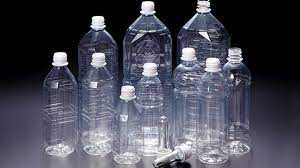
NAFDAC bans importation, production of alcoholic drinks in bottles, sachets
Alcoholic beverages in sachets, PET, and glass bottles with a capacity of less than 200 millilitres are not allowed to be imported, manufactured, distributed, sold, or used, according to the National Agency for Food and Drug Administration and Control.
The announcement was made on Monday at a press conference in Abuja by Prof. Mojisola Adeyeye, the Director-General of NAFDAC.
"There is no alcoholic beverage in these categories that is registered by NAFDAC as of January 31st, 2024," the speaker stated. Additionally, I would like to let you know that the agency has begun taking enforcement action in an effort to make sure this policy is followed. January 31, 2024, was the last day of the NAFDAC-granted window for manufacturers to sell off all alcoholic beverages in this category.
"To this end, the agency began nationwide enforcement actions on February 1st, 2024 to enforce the implementation of the new policy on the first day, after the elapse of the window period."
According to Adeyeye, during enforcement actions, it was found that some manufacturers of these prohibited products were still producing the goods and that they were in possession of stacks of both packaging materials and finished goods.
"Of course, this is not acceptable, and the agency views this as flagrant disobedience to Nigerian laws," the speaker continued. NAFDAC takes this issue seriously and will use all available legal tools, including possible legal action, to address it.
"To avoid harsher measures, such as prosecution, I would like to use this medium to ask all holders of alcohol in sachets, PET and glass bottles, empty sachets, PET bottles, empty glass bottles, and other packaging materials of these banned products to report to the NAFDAC Investigation and Enforcement Directorate as soon as possible. They should then turn the items over to NAFDAC for destruction."
NAFDAC halted the registration of alcoholic beverages packaged in sachets as well as small-volume PET and glass bottles under 200 ml in January 2022.
A high-level committee of the Federal Ministry of Health and NAFDAC, the Federal Competition and Consumer Protection Commission, and the industry, represented by the Distillers and Blenders Association of Nigeria and the Association of Food, Beverages, and Tobacco Employers, made this recommendation in December 2018, which served as the basis for this decision.
The decision made at the conclusion of the committee meeting led to producers of small-volume and sachet alcohol agreeing to cut production by 5% starting on January 31, 2022, and guaranteeing that the product is phased out nationwide by the same date in 2024.
According to Adeyeye, "NAFDAC pledged to guarantee that the renewal validity of alcoholic products that have already been registered in the affected category does not surpass the year 2024."
"NAFDAC is steadfastly dedicated to the stringent enforcement of laws and regulations aimed at protecting Nigerians' health, especially that of the country's most vulnerable youth, from the risks associated with alcohol abuse,"
The NAFDAC DG issued a warning, stating that minors, as well as drivers and passengers of commercial vehicles, are primarily vulnerable to the harmful effects of consuming the prohibited pack sizes of alcoholic beverages.
"The World Health Organisation has established that children who consume alcohol have an increased risk of drug use, poor academic performance, injury or death, risky sexual behaviour, poor decision-making, and health issues," the speaker said.
The World Health Organisation (WHO) has reported a connection between alcohol consumption and over 200 health conditions, including non-communicable diseases like liver cirrhosis and various cancers, and infectious diseases like HIV/AIDS and tuberculosis. It is also linked to social issues like gender-based violence and alcohol addiction.
"WHO recommended certain actions and strategies to policymakers that have proven to be effective and cost-effective, including regulating the marketing of alcoholic beverages and regulating and restricting the availability of alcohol, in order to curb the menace of alcohol abuse."





